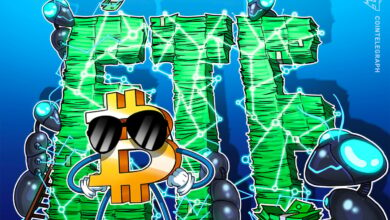
UN approves NFT standards initiative led by Tencent
[ad_1]

Chinese entertainment conglomerate Tencent has been approved by the United Nations to lead a project exploring the creation of a standard technical and security framework for non-fungible tokens (NFTs) .
The project, dubbed a “technical framework for DLT-based digital collection services” will be the world’s first U.N.-approved standards initiative for NFTs, according to state-owned local media.
The U.N. agency for information and communication technologies, The International Telecommunication Union (ITU) approved the project, which is expected to complete an initial draft by the end of 2022, according to a report from the South China Morning Post.
Currently, any recommendations advised by the ITU only become mandatory and enforceable when nations adopt them as law.
“The international standard aims to specify the technical architecture, technical flows, functional requirements, and security requirements for blockchain-based digital collectibles,” wrote Tencent in a statement released on Tuesday.
“It could help drive a consensus and common understanding around the world on the formation of a technical framework for digital collection services.”
Meanwhile, the Chinese government is in the process of developing its own state-backed Blockchain Services Network (BSN).
This will help the Chinese Government to support the deployment of NFT projects unrelated to cryptocurrency, which it banned once again in Sep 2021.
Tencent will collaborate with a number of other companies on the initiative, including Alibaba affiliate Ant Group, The Chinese Academy of Information and Communications Technology, Beijing University of Posts and Telecommunications and Zhejiang Lab.
Related: China aims to separate NFTs from crypto via new blockchain infrastructure
In China NFTs are often referred to as “digital collectibles” in order to avoid criticism from the anti-crypto media and government. For this reason, Chinese NFT-creators tend to avoid public or decentralized blockchains such as Ethereum or Solana, opting to create their collectibles on permissioned blockchains.
Despite the country’s apprehension for crypto, it’s clearly very keen on exploring potential use cases for blockchain technology.
At the end of last month, China announced the commencement of a national plan to expedite blockchain development and innovation across key areas including manufacturing, energy, government data sharing and services, law enforcement, taxation, criminal trials, inspection and cross-border finance.
[ad_2]





